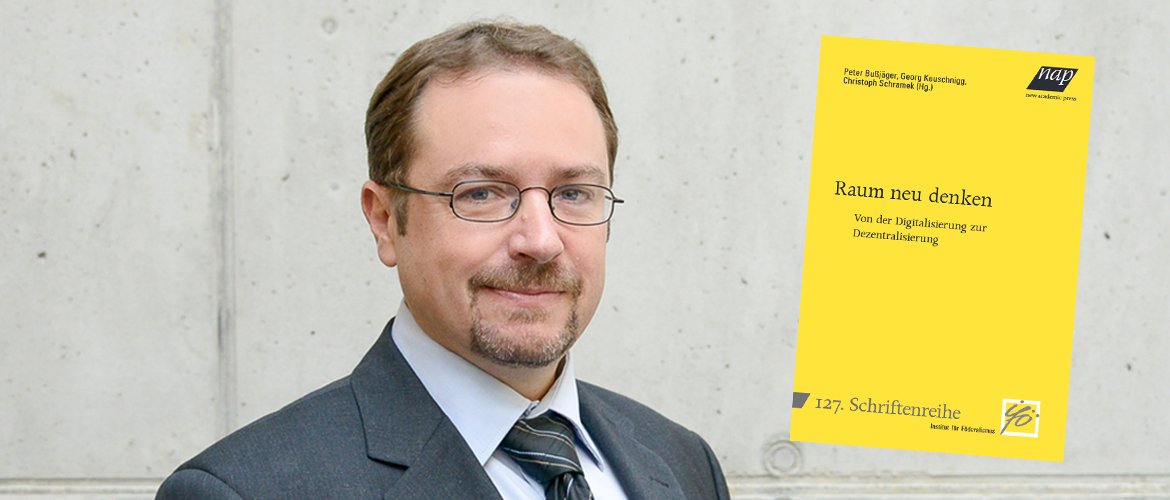
Researcher at FH Kufstein Tirol explains the challenges of digitization in regard to the rural exodus
Publication
In the comprehensive publication “Raum Neu Denken”: Von der Digitalisierung zur Zentralisierung” [Rethinking space: From digitization to centralization], the Institute for Federalism explores the causes and effects of relevant mega trends – such as the rural exodus – and analyzes the possibilities of countering this effect. The anthology was presented on 10.12.2019 in the rooms of the Austrian parliament in order to specifically address those who are politically responsible and provide a space for discussing expert contributions.
Digitization in the rural space
All over Europe, the fast development speeds of urban centers, in contrast to rural regions, are resulting in political problems. A sense of “abandonment” seems to be spreading among rural communities. This has become clear in a data comparison between Austria and other EU countries over the past eleven years (observation time period 2008-2017). It has been shown that the urban areas of Austria have grown by more than 10% – compared to an increase of only 1.6% in rural regions. In Austria, the population growth of the cities is higher than in Europe. According to EU data, a rural exodus of -2.2% has been observed – in Austria there is at least still some growth in rural areas, although very little.
A comprehensive strategy with various components is needed so that digital technologies can be effectively used for strengthening rural regions. Hauser understands these as essential pillars of a digital region such as local tertiary education offers in rural regions as well as the integration of civil society and clubs. These measures contribute to a decentralized presence of urban institutions in the rural region and thereby have a positive effect on life satisfaction. “More is needed than sufficient bandwidth in order to make rural regions fit for the future. Digitization affects all areas of rural living from club life to public administration and innovative value creation. Only a holistic approach can turn a rural region into a digitized region,” explained Private Lecturer Dr. Hauser in his chapter.
A glimpse into the book
In addition to the rural exodus, there are also other impacts of digitization, which are explained and illustrated in greater detail in the publication. The series can be ordered in the publication section of the Institute for Federalism.